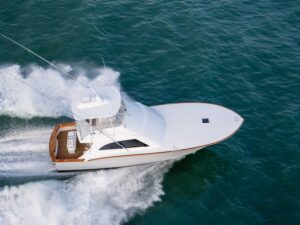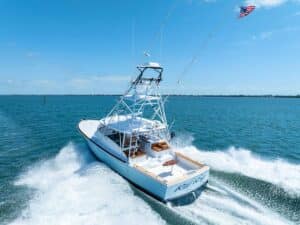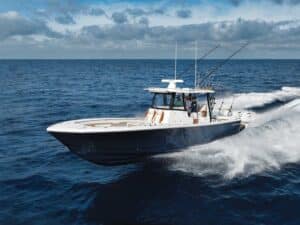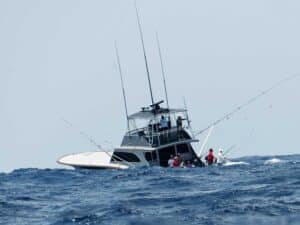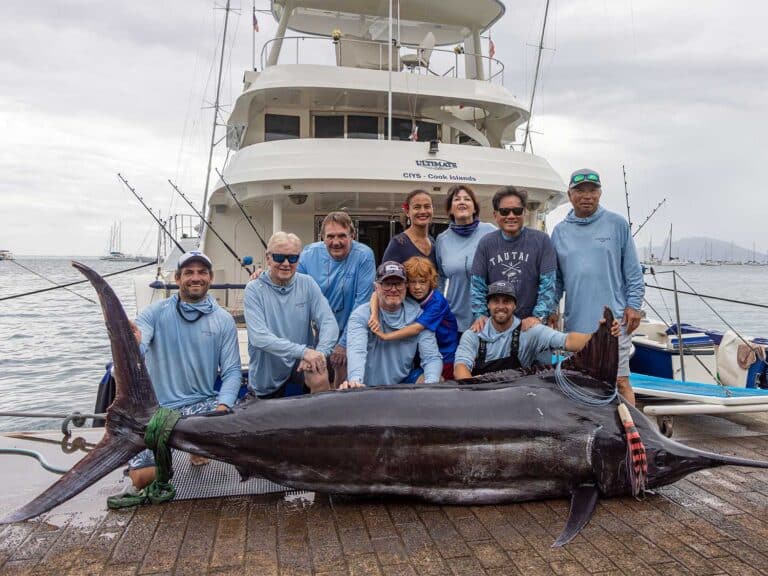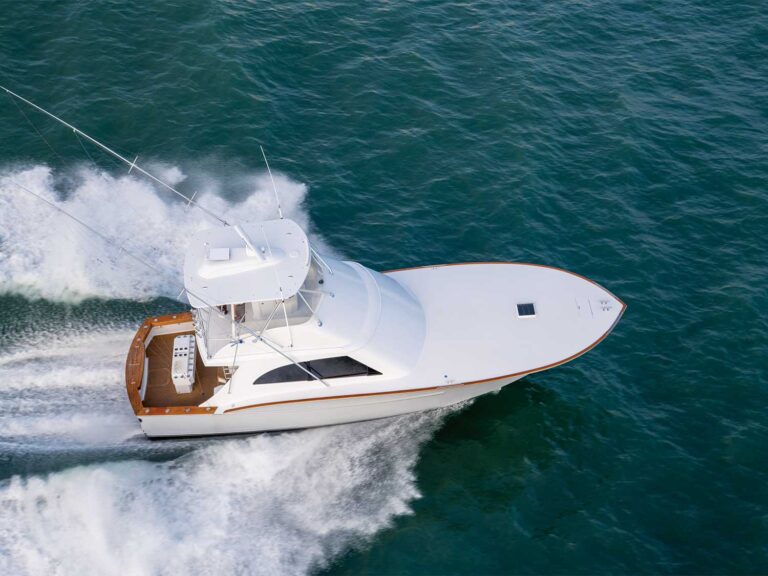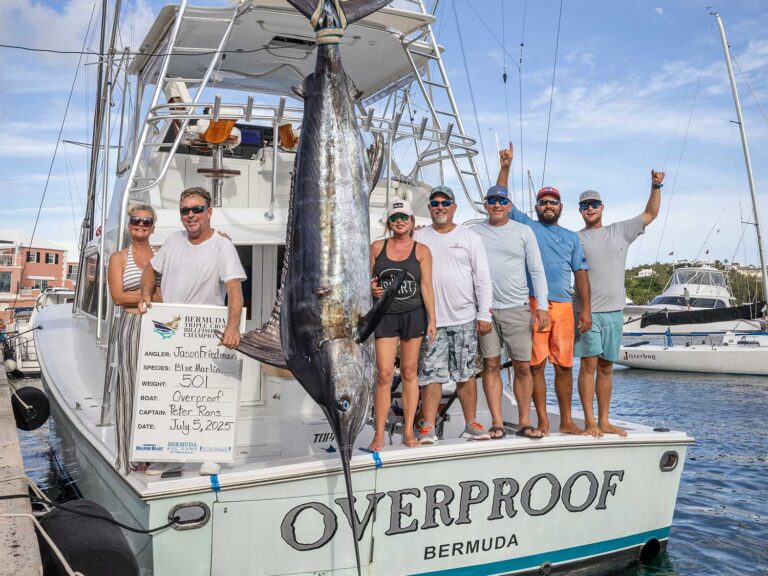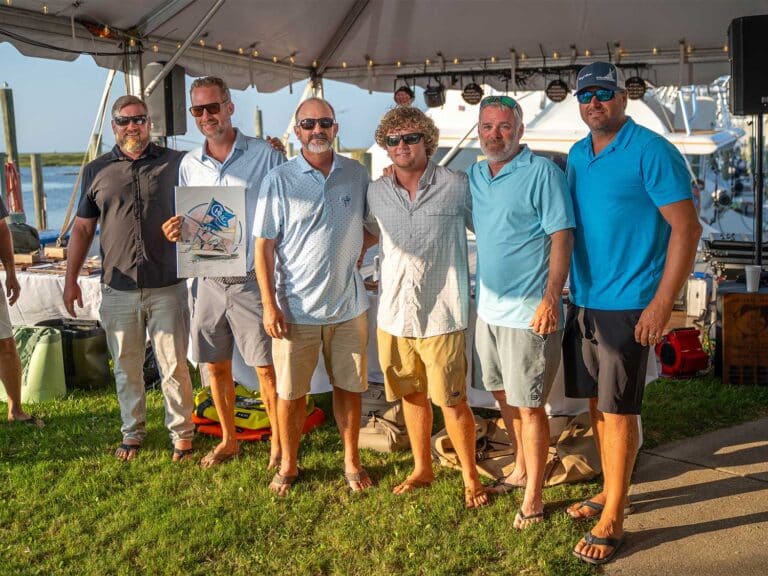
Special delivery: Sign up for the free Marlin email newsletter. Subscribe to Marlin magazine and get a year of highly collectible, keepsake editions – plus access to the digital edition and archives.
Starting in a modest shop in the heart of Stuart, Florida’s renowned boatbuilding community, Mark Willis has carved out a reputation in the sport-fishing world by building good-looking, robust, highly detailed, honest boats. With a track record of building unique vessels that fit the requirements and desires of his discerning buyers, Willis has made a significant impact on the custom boat market—his boats have traveled far and wide, with owners actively seeking them out for their ride, fishability and capabilities. Hull No. 18 is under construction, one of three 70-footers currently underway at Willis Custom Yachts.
Q: How did you become a boatbuilder?
A: It’s an old story—I started as a fisherman, and then back in 1982 or something I started building a little 30-foot boat for myself, a single screw with a gas engine, pretty basic by modern standards. I learned by reading books and watching and listening and being on the water. A guy came along and wanted to buy that boat from me, and I thought, “Well, I can sell this boat and make a little money; then I can build a little nicer boat for myself.” That was 40 years ago, and I still don’t have a boat.
Q: What technologies are you bringing into your builds today?
A: We’re still building a cold-molded wood epoxy hull, but from the hull up they’re all
carbon epoxy infusion. Just about everything we do is carbon: the salon deck, cockpit deck, bridge, cabin, console, bow deck, the forward sole—it’s all composite. We’ve really embraced that. I’ve become a big fan of infusion. Once you mix your resin, it all just flies through the tubing and injection to the parts. You’re not sticky, you don’t have it all over you, and it’s healthier with this technology.
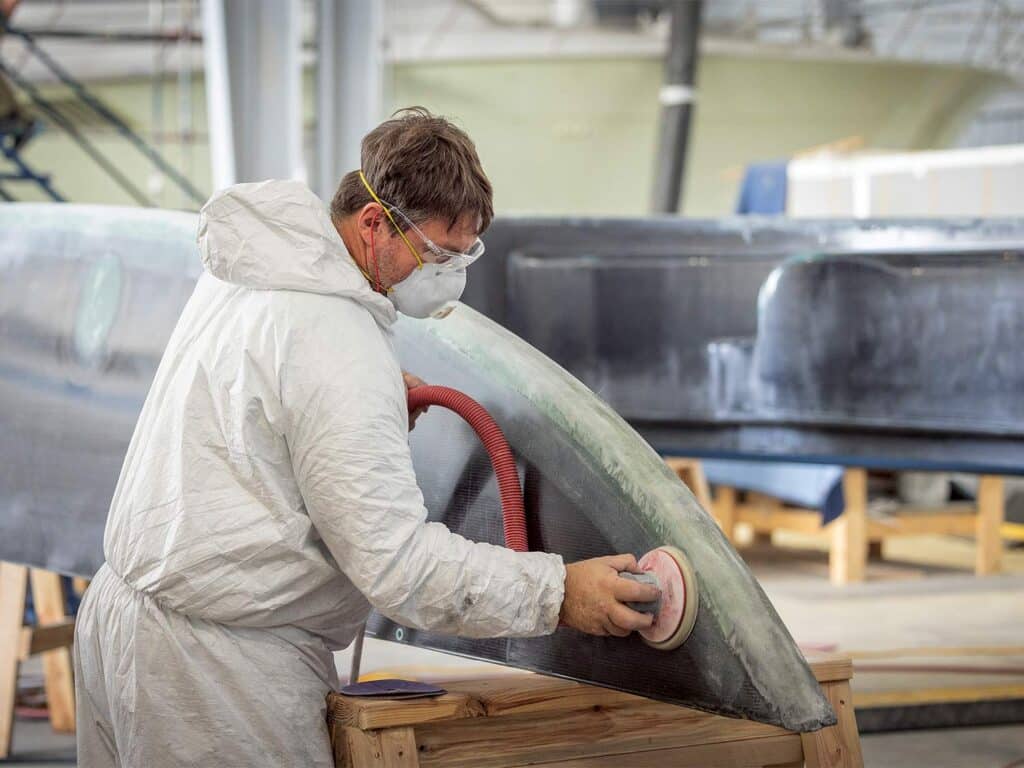
Q: Would you ever transition from a cold-molded wood hull to an all-composite one?
A: I don’t know if we would, but I’d like to. It’s definitely the way to go. You can do it more efficiently and save the customer money. I tell the guys every day that time is a nonrenewable resource. Cold-molding a hull takes us seven or eight months, and that’s not the case with a molded composite hull.
Q: What do you have in the works now?
A: We’ve got three boats currently under construction, all 70-footers. My plan with Brooks [Smith] was just to try to build that one boat and borrow a page from Roy’s [Merritt] book, trying to be as efficient as possible and get the boats done in a reasonable amount of time. That’s compared to the previous business model of just building whatever a customer wanted and jumping all over the place, from a 63 to a 67 and then a 76 or whatever.
Q: What’s the most challenging build you’ve had?
A: The 77-foot Uno Mas we built for Brooks Smith. It’s obvious if anybody’s ever seen that boat, but the complexity of everything from the sonars to the Octoplex control system to all the air-actuated doors and
hidden lockers, the intricacy of the audio-video and the interfaces and so much other stuff—it was really challenging. But she’s beautiful, and we’re very proud of that boat.
Q: What would you say are your signature style elements?
A: I used to pride myself on being able to tell everybody’s boat apart in the middle of a fishing fleet, but now it gets harder and harder. I evolved to a swept sheer, and we really focused on the lines of the cabin and the bridge. I think we have a really good-looking boat. It’s fairly unique.
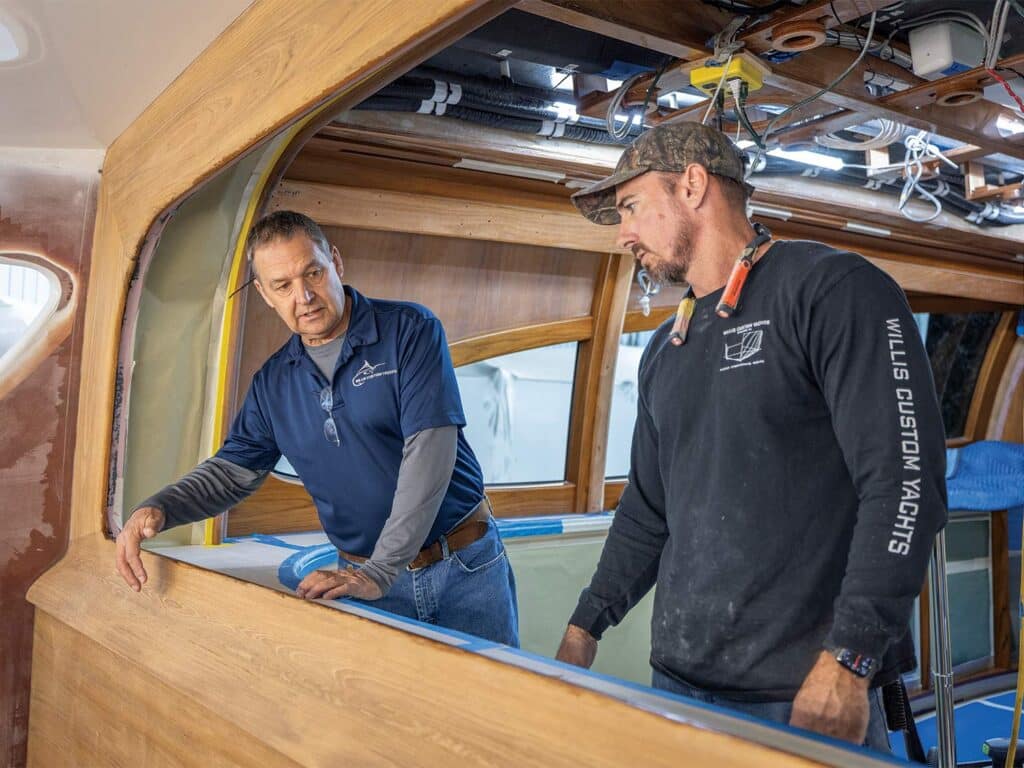
Q: If you were building a boat for yourself, what characteristics would it have?
A: I’m a big advocate of keeping it simple. Something in the mid-60-foot range with 12-cylinder engines—to me that’s a really fishable platform and would be a fun boat. That’s one reason we stuck with the 70-footer—it gives you the choices of MTU, Caterpillar or MAN engines so you have different choices for power with a nice four-stateroom, three-head layout. It has enough bottom to give you a good ride without being too big to get around on a fish.
Q: It also seems like everyone wants speed these days—what are your thoughts?
A: I think we have to be careful as an industry. We’re very lucky to be unregulated, for the most part, as we approach the 50-knot barrier, where we have more boats capable of those speeds. When you start going that fast, you’re starting to talk like the automotive industry, and we’d all be wearing five-point restraints and helmets. And think about how much tougher you have to build the boats to withstand those kinds of forces—things are expensive enough as it is now.
Q: Speaking of that, where’s the custom market right now?
A: I don’t have a crystal ball, but it’s an election year with a lot of craziness going on. It certainly hasn’t shut down, but it’s always cyclical. We’re probably going to go into a slowing trend because it’s been so strong for so long, but I’m sure it will come around again.
Read Next: Willis Custom Yachts Acquires Waterfront Location in Stuart, Florida
Q: What do you enjoy doing when you’re not working?
A: I really enjoy coyote hunting, and I think they’re worthy adversaries. I like to shoot a doe deer once a year for the meat, but deer hunting doesn’t hold a lot of fascination for me because they’re pretty simple to shoot. But coyotes represent a completely different kind of challenge. So I like to get together with some buddies out in the middle part of the state [of Florida] and hunt as often as we can. There’s no season, just like feral hogs, and it’s never rough, you never take spray over the bow, and there’s nothing going on in the engine room.
Q: What does the future hold?
A: I’m going to give this a few more years—I haven’t made any hard decisions on retirement. I’ll stay with it. I really like what I do, and it’s been a lot of fun. In the end, it’s all about the personal relationships and the people; it’s not always about the product. I’ve really got some wonderful guys, and I enjoy being around them every day.
